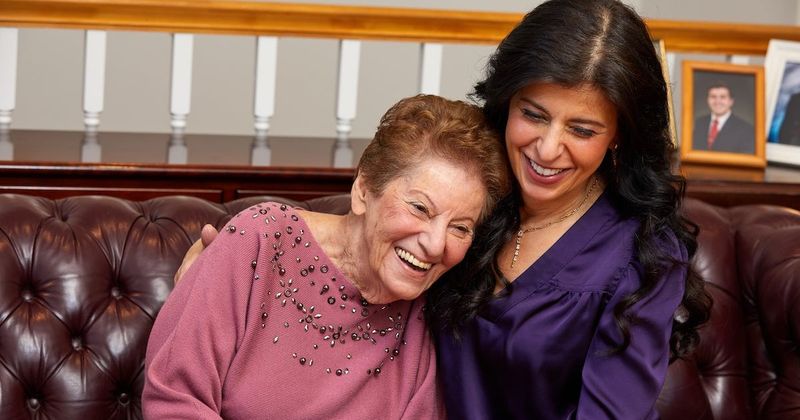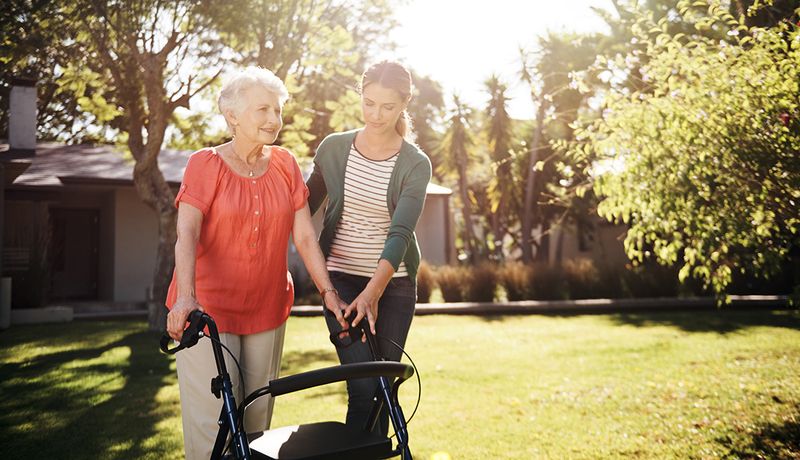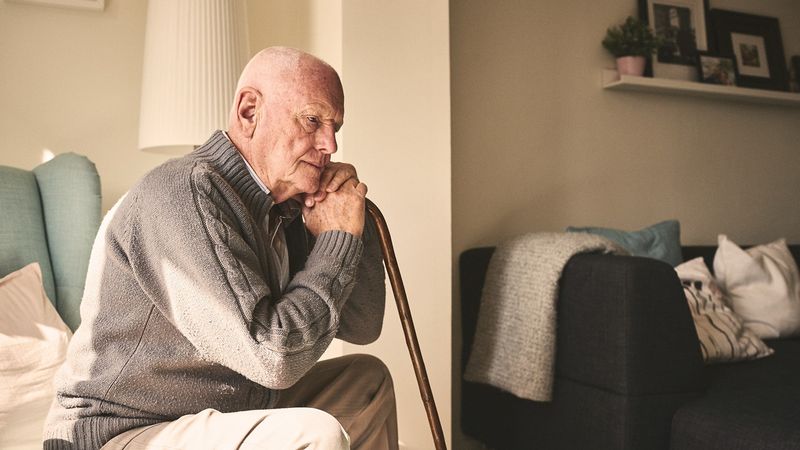When The Roles Reverse: Navigating The Journey Of Becoming Your Parent’s Caregiver In 18 Ways
No one gives you a manual for the day your mom or dad starts needing help with things they taught you. You know what I mean: the slow crawl from “Can you pick up some milk?” to “Can you sort my meds?” It sneaks up until it thunders in, and suddenly you’re the one holding the safety net.
There’s no glamour in it. No gold star for folding a week’s worth of laundry when you’re fighting back tears or trying to explain—again—why the same story keeps repeating. But if you’re reading this, you’re already doing the bravest thing: you’re sticking around when it’s hard, real, and complicated.
Here are 18 ways this role reversal plays out, each its own wild, raw, sometimes funny, sometimes aching moment. Let’s rip off the comfort blanket and get honest about what this really feels like, and how we can make it through—together.
1. The First Warning Sign

It rarely announces itself. Maybe your dad forgets the name of his favorite singer, or your mom repeats a grocery list twice in one call.
That first flicker—when you realize something shifted—burns a memory into your chest you can’t unsee. You want to believe it’s nothing, but the air changes around you.
Some people convince themselves for months that it’s just stress or age. I spent weeks telling myself my mom was tired, not slipping. But that warning sign? It’s the stone in your shoe you can never quite shake out.
2. The Power Shift

Control used to mean curfews you hated and bedtimes you ignored. Now you’re the one making the rules—doctor’s orders, driving restrictions, medication times.
It feels unnatural, like wearing your shirt backward. The person who always led now looks to you for direction. Every ask carries weight—sometimes shame, sometimes relief.
You want to do it kindly, but some days your patience runs out. And there are moments you wonder: Is this what they felt when I pushed back as a kid?
3. Money on the Table

No one warned me how awkward it gets when you open your parent’s mail and find overdue bills. Suddenly, you’re talking about money you never earned, retirement accounts, who pays for what.
It’s part business meeting, part confession booth. At times, you’re the detective—hunting down missing statements or unmasking scam phone calls.
There’s guilt in every decision—too frugal, too generous, too bossy. But talking honestly about dollars is one of the most grown-up things you’ll ever do with your parents.
4. The Medicine Cabinet Dance

Prescription bottles start multiplying like rabbits. Suddenly, your calendar revolves around pharmacy runs and color-coded pill boxes.
You worry you’re playing pharmacist without a license. One missed dose and the guilt hits you like a cold slap. I’ve triple-checked labels at midnight, wondering if I’d ever get it right.
Every refill is a test of memory, trust, and patience. It’s the quiet vigilance you never see in Hallmark movies but lives on your bathroom shelf.
5. Seeing the Parent as Vulnerable

You remember the first time your parent looked small. Maybe they missed a step on the stairs, or their hands shook pouring tea. The shift is subtle, but your instinct to protect kicks in hard.
It’s humbling and jarring at once. The person who chased away your childhood monsters now needs you to face their own.
You want to wrap them in bubble wrap and keep them safe. But you also know—deep down—they’re mourning the loss of their own strength. You both are.
6. The Battle Over Independence

Handing over the car keys is a showdown no one wins. My dad threw his keys on the table, said, “Don’t treat me like a child.” But that’s how it feels, to both of you.
Every act to keep them safe risks stripping away another layer of their independence. How do you say no when you know it might break them a little?
You argue. You make deals. Occasionally, you cry in the hallway. Nobody tells you that loving someone means saying “Enough” when they won’t.
7. The Return of Old Grievances

That argument you had when you were sixteen? It sneaks back in through the cracks. Old hurts resurface when you’re both tired, both scared.
You can’t believe you’re fighting about chores or curfews again. Now and then, your parent treats you like the rebellious kid you once were—and you snap, feeling every ounce of teenage resentment.
But under it is fear. Grief, too. This is what happens when you both lose control at the same time.
8. The Guilt Spiral

There’s a special brand of guilt reserved for caregiving. Didn’t call enough. Didn’t do it right. Lost your temper. Skipped a visit. Missed a sign.
It never adds up to enough. No matter how much you give, you always feel like you’re failing someone—your parent, your family, yourself.
Some days, guilt is the heaviest thing you carry. You survive by forgiving yourself, one mistake at a time. That’s the real work.
9. Finding Humor in the Chaos

Last Tuesday, my dad put the remote in the freezer and blamed it on the cat. We laughed until we cried. Those moments are rare, but they keep you sane.
Every once in a while, humor is the shield you need. The only way through a disastrous dinner or disastrous haircuts is to laugh at the madness together.
It isn’t disrespect. It’s survival. If you can’t find a reason to smile every now and then, the weight of it all wins.
10. Saying the Hard Things

No one wants to talk about advanced directives or end-of-life wishes. But you have to. The words taste like metal, and you hold your breath as you ask, “What do you want if things get worse?”
It’s raw. It’s honest. It opens wounds and sometimes heals them, too.
You owe it to both of you to be brave enough to say what needs saying. Silence is easy. Clarity is a gift, even when it hurts like hell.
11. Sibling Dynamics

If you have siblings, caregiving becomes a team sport. Or a full-on wrestling match. Suddenly, old rivalries resurface alongside questions of fairness and who does the most.
Some days, you’re united by a shared mission. Other days, you resent each other for not sharing the load the way you want.
It’s messy and complicated. But, when you’re both exhausted, a midnight text—“You okay?”—reminds you you’re not alone in this.
12. Losing Patience, Finding Grace

I snapped at my mom for the third time in an hour. Instantly, regret. You try to be patient, but sometimes you run out. And that’s okay.
The secret is not pretending to be perfect, but apologizing and trying again. Grace is in the do-overs, the quiet “I’m sorry” after the storm.
You don’t have to be a saint. You just have to come back, softer, each time you break a little.
13. Time Becomes a Currency

You start measuring your days in minutes, not hours. Fifteen minutes for a phone call. An hour for a doctor’s visit. Five minutes for a hug goodbye.
Suddenly, time feels expensive. You catch yourself wishing for the days when you had too much of it.
Every moment you give is one you can’t get back. But, those small moments—shared coffee, soft hands—are the most valuable things you own.
14. The Paperwork Avalanche

If paperwork were a sport, caregivers would win gold. Insurance claims, medical histories, power of attorney forms—it’s endless.
You learn to decipher legalese and track down signatures like a detective. At times, it feels like the paperwork matters more than the person.
But every signature, every form, is another way you hold things together when it feels like everything’s falling apart.
15. Letting Them Have Dignity

Helping your parent use the bathroom, get dressed, or take a shower—these are the moments that test your courage and theirs. You learn to move slow, keep your eyes gentle.
Dignity is the difference between “helping” and “humiliating.” You offer choices, respect, and privacy, even when it takes twice as long.
It’s not about doing everything for them, but with them. Sometimes, the bravest thing is letting them try, even if it’s messy or imperfect.
16. The Loneliness You Didn’t Expect

Nobody talks about how lonely you get. You miss friends, movie nights, simple spontaneity. Even in a room full of people, you can feel like you’re the only one living on this planet.
You scroll through your phone, wanting to text someone who gets it. You just want someone to listen without fixing anything.
It’s real, it’s sharp, and it passes. You learn to find comfort in the small ways people show up—an unexpected call, a coffee dropped at your door.
17. Rediscovering Your Parent’s Story

Some nights, my dad tells me war stories I’ve never heard, or we flip through old albums and I find out who he loved before mom. It’s strange—watching your parent become a person, not just a parent.
You realize there’s a whole life you never asked about. Moments you missed while you grew up and moved out.
Rediscovering their stories gives meaning to the mess. You find connection in the details—their laughter, their heartbreak, the things they carried that made them who they are.
18. Letting Yourself Grieve (Even Before They’re Gone)

Grief doesn’t wait for funerals. It seeps in when you watch your parent forget your name, or when you realize they’ll never be who they were.
You’re mourning the loss of the parent you knew, while loving the person in front of you. That double-edged ache is real.
Letting yourself feel it—without shame or apology—is how you stay whole. Grief is the price of loving well, even when it hurts.







